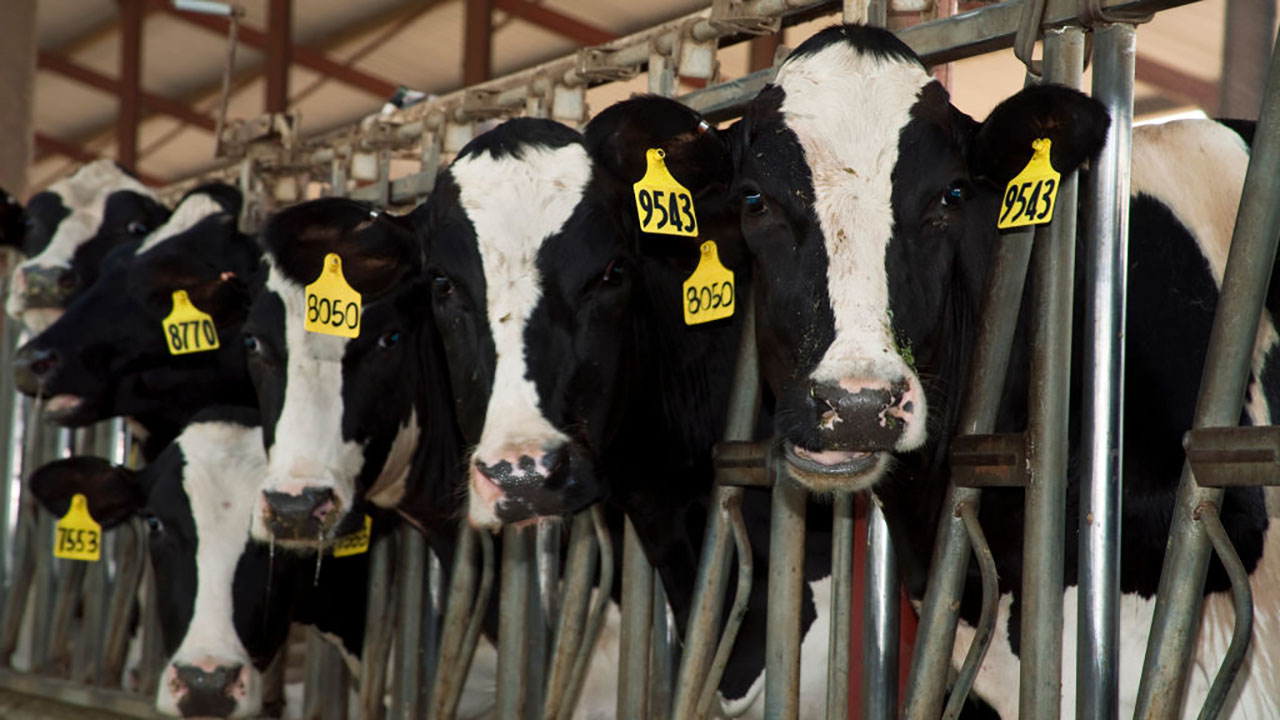Bird flu in Michigan: State testing milk amid fears of avian influenza infecting dairy farms
In an effort to curb the spread of highly virulent avian influenza in Michigan, the state issued an emergency order on Wednesday.
-
-
The Michigan Department of Agriculture and Rural Development is testing milk from its dair farms as part of a new USDA monitoring strategy of bird flu
-
Highly Pathogenic Avian Influenza is a growing concern as more infections are reported among poultry flocks and dairy herds
-
This week, the CDC reported the first severe case of a human infected with bird flu
-
-
The Michigan Department of Agriculture and Rural Development is testing milk from its dair farms as part of a new USDA monitoring strategy of bird flu
-
Highly Pathogenic Avian Influenza is a growing concern as more infections are reported among poultry flocks and dairy herds
-
This week, the CDC reported the first severe case of a human infected with bird flu
(FOX 2):In an effort to better understand High Pathogenic Avian Influenza (HPAI), Michigan is analyzing the milk produced by its dairy farms in response to rising concerns that the virus linked to bird flu could turn into a public health emergency in the United States.
The emergence of cows contracting the H5N1 strain is a fresh concern for health and agricultural officials, even though bird flu commonly circulates among wild birds and can migrate to commercial flocks and poultry farms during migration.
“This is a new disease for us in dairy cattle,” Michigan Agriculture Department Director Tim Boring stated.
Michigan is in the initial stage of milk testing to better understand the biology of the altered virus. Testing as a way to keep an eye on farm-sourced milk samples.
Pennsylvania, Mississippi, Oregon, Colorado, and California are among the other states participating in the new federal approach.
Any knowledge gained from the approach will be applied to enhance comprehension of the characteristics of the avian flu outbreak, particularly its transmission and mutation.
The first dairy herd infection in Michigan was caused by the H5N1 outbreak among cattle, which was initially documented in Texas in March. The first human to test positive for avian flu was shortly after that, according to the CDC.
That person, a Texas farm worker, was probably exposed while handling dairy cattle.
Since then, farms that raise cattle and poultry have reported that their animals have contracted diseases. The first verified case since May, when the outbreak was at its worst in Michigan, occurred in a commercial chicken flock in Ottawa County.
As more governments attempt to control the disease as it spreads, California is now dealing with the outbreak.
The Centers for Disease Control and Prevention said that an infected person had avian flu this week. But according to the CDC, that particular strain is distinct from the one found in dairy cows and other human cases.
There have been 61 human cases of avian flu as of December 13.
Because of the severity of the outbreak and the possibility of more mutations, MDARD is working with the federal government and other state departments, including the DNR and MDHHS.
“This is the one piece that has set our approach in Michigan apart from other states,” Boring stated. “It truly is a one-health approach.”
How does bird flu spread?
There are several ways that bird flu can spread, such as through contact with other sick animals, from wild birds, from flock to flock, or through clothes.
Since birds travel longer distances during their migratory seasons, transmission is more prevalent at those times. It is possible for both backyard birds and birds at big commercial farms to get HPAI.
Therefore, MDARD often recommends that managers keep domestic birds indoors during these seasons to avoid contact with wild birds.
It is advised that everyone who handles flocks wash their hands both before and after.
Reporting bird flu cases
Depending on the type of sick bird, the state should be notified of any possible occurrences of bird flu.
Domestic bird owners should contact MDARD by contacting 800-292-3939 during the day or 517-373-0440 after business hours if they witness unexpected flock mortality, a decline in egg production, or negative health effects.
Contact the DNR via the Eyes in the Field app or by phoning the lab at 517-336-5030 if you see any strange or concerning behavior among wild birds.
Note: Every piece of content is rigorously reviewed by our team of experienced writers and editors to ensure its accuracy. Our writers use credible sources and adhere to strict fact-checking protocols to verify all claims and data before publication. If an error is identified, we promptly correct it and strive for transparency in all updates, feel free to reach out to us via email. We appreciate your trust and support!










